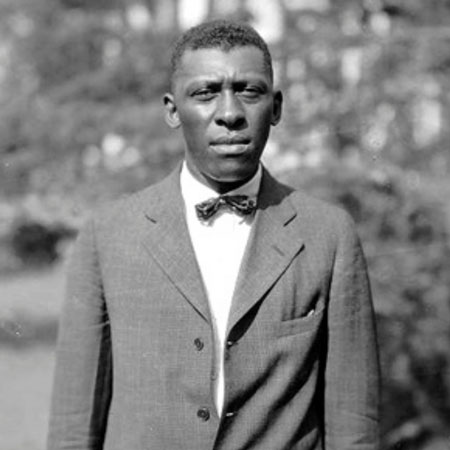America's First Black Extension Agent: T.M. Campbell (1883-1956)
 Thomas Monroe Campbell, better known as T. M. Campbell, was America's first ever Black
extension agent.
Thomas Monroe Campbell, better known as T. M. Campbell, was America's first ever Black
extension agent.
Campbell attended Tuskegee Institute around 1900 during the time that Booker T. Washington was its president, and Campbell worked under the tutelage of science professor George Washington Carver.
In 1906, four people were appointed to educate rural farmers in Alabama by demonstrating new, research-based techniques. This was what would become the Cooperative Extension Service.
At this time, Carver and Washington advocated for Campbell to become the first Black extension agent for the USDA to help educate poor Black farmers by demonstrating these improved farming techniques and practices for land management.
Campbell's first major assignment was to manage Tuskegee's Moveable School of Agriculture, a product of Washington's own efforts. This was a wagon stocked with agricultural supplies such as seeds and fertilizers that was created for the purpose of these demonstrations.
Campbell showed incredible performance in his work and was promoted to district agent for Alabama and neighboring states. By 1914, he had assisted 11 southern states by assigning Black farm and home demonstration agents to those areas.
He said in his autobiography that during his time on the road, he saw "hundreds of squalid, ramshackled cabins tenanted by forlorn, emaciated, poverty-stricken Negroes who year after year struggled in cotton fields and disease-laden swamps, trying to eke out a miserable existence."
The USDA eventually promoted Campbell to field agent where he supervised Black extension agents in the Lower South. Campbell had grown so popular that several Black colleges offered him administrative positions, but he turned them all down to stay with the Extension service.
He continued to help improve the lives of rural Black farmers throughout World War I and the Depression by serving on committees, getting involved with relief work, and even broadcasting a radio program for Black farmers, where he shared extension news and ideas. He also worked to improve lives in Africa in addition to the US, and continued to raise money and grow the number of Black agents for the extension service.
By the time Campbell retired, the number of Black extension agents had increased from 1 to 850. He had devoted his life to improving the lives of so many Black Americans by demonstrating how to reach financial independence, grow bigger and better crops, and raise their standards of living.
T. M. Campbell made an extraordinary amount of progress for both the Cooperative Extension Service and for Black farmers in the South. We are grateful for his efforts and stories like his that inspire us to help the communities around us, and we are humbled by his legacy.
Resources and Additional Reading
Encyclopedia of Alabama: T. M. Campbell▶️
T. M. Campbell's Autobiography